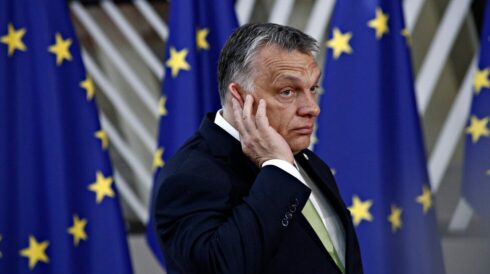Romania is upset about being made fun of, Slovakia protests the naming of its territories as “detached” Hungarian land.
Written by . Originally published by The European Conservative
Both Romania and Slovakia have formally objected to Hungarian Prime Minister Viktor Orbán’s speech given on Saturday, July 22nd, at Tusványos, a conservative political gathering in Transylvania. The thorny issue of ethnic Hungarian minorities living in Hungary’s neighbouring countries regularly disturbs the peace between Budapest and its Central European partners.
The speech was given at the Tusványos Summer University in Băile Tușnad, Romania, which is in the heart of Transylvania, a territory that historically belonged to the Kingdom of Hungary and still has a sizable ethnic Hungarian population. At the start of his speech, Viktor Orbán revealed that the Romanian Ministry of Foreign Affairs had sent him a démarche, a diplomatic request in which they advised him what topics not to talk about, “anything that might offend Romanian sensibilities.” Among the topics mentioned were collective minority rights. Orbán ironically professed that he would respect Romania’s wishes and not touch on the subject, “but will just state that they [collective minority rights] exist and are the entitlement of the Hungarians living here.”
According to the 2021 Romanian census, approximately one million ethnic Hungarians live in Romania, but Bucharest does not recognize collective rights for ethnic minorities and rejects any kind of autonomy, something Hungarians have strived for since the end of the Communist era.
The Romanian Ministry of Foreign Affairs also urged Orbán not to talk about “non-existent administrative areas” in Romania. “I have thought hard about what they could mean by that. I think they mean Transylvania and Szeklerland, but we have never claimed that these are Romanian administrative areas,” quipped Orbán, referring to majority-Hungarian-speaking counties in Transylvania, and the Szeklers, a distinct group of Hungarians.
The Romanian Foreign Affairs Ministry on Monday, July 24th, summoned the Hungarian ambassador to complain not so much about Orbán’s words, but more about his decision to reveal the contents of the Romanian diplomatic request. According to the Ministry, the prime minister’s “inappropriate public statements” are not in line with Romania’s aim for the two countries to build a “constructive, pragmatic and neighbourly relationship.” Ionuț Stroe, spokesman of the centre-right National Liberal Party, one of the governing parties, also criticised Orbán for his “provocative” statements and for making fun of Romanian institutions. Hungarian Foreign Affairs Minister Péter Szijjártó reacted by saying that he was not surprised by his Romanian counterpart’s decision to summon the Hungarian ambassador, but that Budapest also strives to have a relationship based on mutual respect.
Ties between the two countries have always been somewhat tense, especially due to the thorny issue of Hungarian minorities. However, both governments have worked to strengthen their relationship, and the participation of a Hungarian minority political party, RMDSZ, in the Romanian government, has probably helped that cause. Viktor Orbán also met with his Romanian counterpart Marcel Ciolacu whilst in Romania last week, and promised to move forward Romania’s entry into the Schengen Area during Hungary’s Presidency of the European Union starting next July.
Slovakia is another neighbouring country with a large Hungarian-speaking population; around 460,000 citizens declared themselves Hungarian in the 2021 census. Diplomatic ties were strained during most of the 1990s and 2000s, but heated debates within the European Union, such as the one on migration, have brought the two countries much closer together.
The government of Slovakia, however, was not happy about statements made by Orbán on Saturday. Answering a question by a member of the audience at Tusványos, the prime minister referred to Hungarian minorities as living in “detached” territories of Hungary, a phrase generally used by Hungarians to speak of territories once belonging to the Kingdom of Hungary, but lost after the Treaty of Trianon at the end of World War I.
The Slovak Ministry of Foreign Affairs summoned the Hungarian ambassador on Monday, stating: “We will not tolerate any questioning of Slovakia’s territorial integrity or sovereignty in any direct or indirect way, nor will we tolerate interference in our internal affairs.” A host of other Slovak politicians also weighed in on the matter, with former Prime Minister Eduard Heger writing on his Facebook page: “Slovakia is not a breakaway territory! Viktor, it is unacceptable for you to express yourself in this way about Slovakia.”
Zoltán Kottász is a journalist for The European Conservative, based in Brussels. He worked for many years as a journalist and as the editor of the foreign desk at the Hungarian daily, Magyar Nemzet. He focuses primarily on European politics.







hopefully he’s not eyeing out northern serbia which used to be part of hungary and has about 250,000 ethnic hungarians. the losers of the 2 world wars are still butthurt over their lost territories.
yeah “fortunately” germany has no such luxury as its civilians were ruthlessly ethnic cleansed and/or blatantly genocided by the allies.
one should remind hungary where their forefathers originally came from, romanians and slovaks are native to the territory for thousands of years.